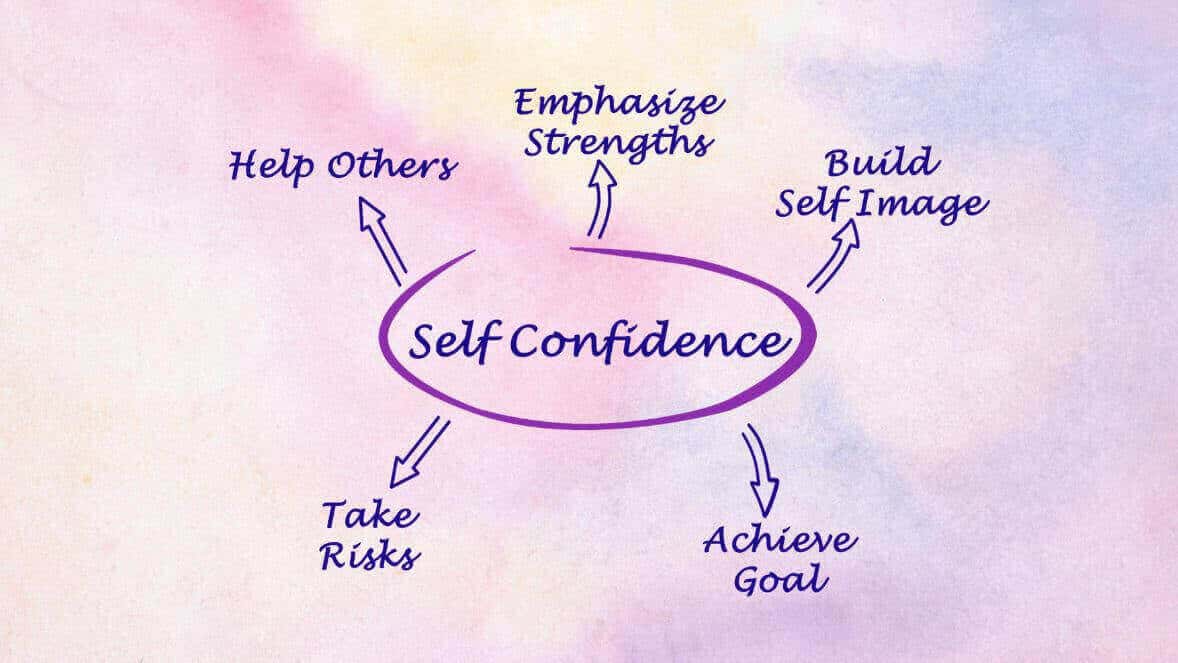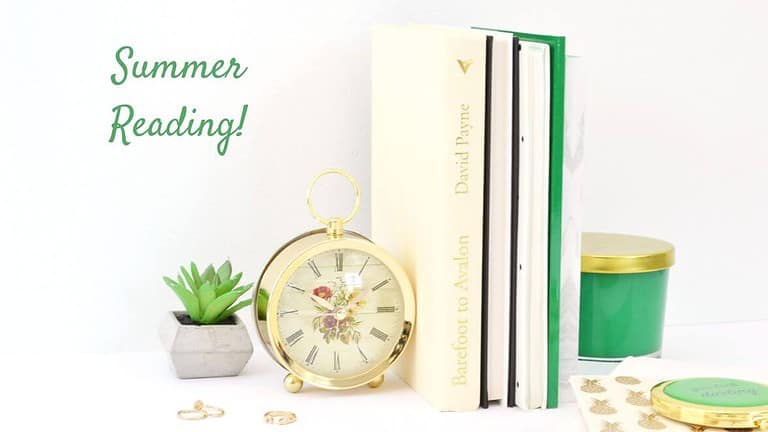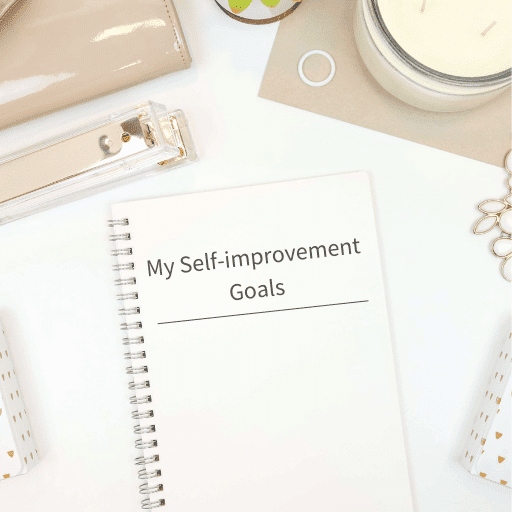Why Journal? For Relaxation, Communication a Peaceful Life
So why should you start a journal? Journaling is a great way to create better habits. Simply, because it forces you to become mindful of your actions and behaviors. Journaling is useful when used as an outlet for creating, experiencing, and managing different parts of your life. And not just mental health, but physical health as well. Strengthening communication and also your overall relationships.

This post may contain affiliate links, which means I may receive a commission, at no extra cost to you, if you make a purchase through a link. Please see my full disclosure for further information.
Benefits of Journaling
You may ask yourself, why journal? Well, because there are a lot of benefits to keeping a journal. Keeping a journal is a vital way to document your inner life. It allows you to reflect on yourself, clarify feelings, and get a deeper understanding of different events in your daily life.
Keeping a journal can provide you with the opportunity to consider the narrative of your life. All the choices and memories that you made turned you into the person who you are today. Developing a journaling habit can help you process emotions, particularly when you are feeling anxious or sad. Studies have shown that journaling helps people heal from traumatic events faster than those who don’t.
Journaling can help you organize your thoughts, clear your mind, solve problems more easily, and gain insight. It can actually save you time and energy by clearing your mind and thoughts. Not to mention, it is one of the best ways to clear your mind. Not to mention keep in touch with your thoughts and feelings. It forces you to focus on your inner awareness of the present moment and analyze your experiences.
Mental Benefits of Journaling
Your mental health is particularly important, and journaling can directly help you control your emotions; for those struggling with stress, anxiety, and/or depression, it can improve your overall mental health.
Journaling for mental health can help you explore your thoughts and emotions. Whether it’s anxiety, stressful events, or dealing with past trauma. It can be a rewarding activity. Therefore, bringing joy to your daily life and helping you stay connected with your emotions.
Studies also have shown journaling reduces intrusive, depressive thoughts, and decreases the overall depression levels. Especially in people diagnosed with major depression. There is an overwhelming amount of evidence about the results of journal writing therapy. Evidence points toward its success in helping people recognize and embrace their emotions. In addition to managing stress, and ease symptoms of mental illness.
[convertkit form=4988395]
There is so much evidence of the mental and emotional benefits of journaling. In fact, counselors and therapists frequently urge their patients to journal. Journaling allows an individual to take events that they have experienced and integrate it into their overall outlook on life.
Journaling helps you identify patterns in your thoughts or behaviors that are not serving you. Connecting the dots between what you are thinking and doing and how you are feeling. It is also a valuable and powerful tool to work through issues and relieve the pressure from traumatic experiences or other difficult emotions.
When you start a journal entry for your mental health, you can write down your innermost thoughts. This helps you put things into perspective. By writing down your feelings, you will “unload the brain” from worries, disappointments, and pain.
Improve Emotional Health
When you start a journal, you can begin to manage your common sources of stress. Therefore, making you less susceptible to anxiety and depression. Journaling also allows you to face things directly; situations that you are experiencing now, rather than avoiding coping with them. If you are trying to work your way through a painful situation, starting a journal can help. Thought writing will help to focus your writing on positive outcomes, not just negative ones. When writing in your journal, provide opportunities to have positive self-talk and to acknowledge negative thoughts and behaviors.
Don’t just focus on the negative thoughts. Don’t let them run rampantly through your head. Engage with your thoughts and identify if they are real or not. Create a positive outcome from those negatives. Writing them out allows you to capture the repetitive thoughts on paper. Giving you the ability to process them efficiently, and eventually release them.
The benefits of journaling can help push you forward in your pursuit of academic and personal growth. Exploring your thoughts and emotions leads to self-discovery. Journaling is self-expression that awakens intuition, helps you understand and express your feelings, improves your mental health, and stimulates self-knowledge.
Journaling allows people to clarify their thoughts and feelings, thus gaining valuable knowledge of themselves. A journal can be an escape or emotional release from negative thoughts and feelings. Writing out your emotions can help you identify what’s causing those negative thoughts and feelings. Increasing your capacity for self-analysis and self-control.

Helps Thoughts & Emotions
Starting a journal can help you explore your thoughts and emotions. This can help you organize your thoughts, clear your mind, and solve problems more easily. Also you’ll gain insight into yourself. Journaling is one of the best ways to clear your mind and keep in touch with your thoughts and feelings. It forces you to focus on your inner awareness of the present moment and analyze your experiences.
Journaling is an effective way to explore and change your thinking. It allows you to rotate from meditative and eager to proactive and action oriented. Writing about your feelings is cleansing, enlightening, and liberating.
The diary is cleansing because it helps you sort out your thoughts and emotions; enlightening because it brings out your self-discovery, and liberating because it releases repressed negative feelings and emotions.
When you write your experiences, and thought processes, it lends permanence to your experience. This helps evoke memories of the past, and of the feelings and emotions experienced during those moments.
Recording events in a diary helps create more specific memories. The process of writing also increases your ability to remember them and reduce the stress involved with that situation.

Writing Reduces Stress
While we can’t control many stressful situations, developing journaling practice can help. It enables us to manage our thoughts and feelings so we can feel better. Even if you are having a difficult time in life. The diary can be used to reduce stress, process thoughts, feelings, and experiences. You’ll also gain self-awareness and understanding, and a personal way of expressing yourself.
A journal can reduce stress by acting as an escape or emotional release from negative thoughts and feelings. If you’re struggling with anxiety and depression, journaling can help you identify what’s causing your negative thoughts and feelings.
Journaling works as a very effective tool for combating negative effects as it can help improve your stress management skills. Thereby reducing the impact that stress has on you.
I always wondered, “why journal?” I know how I feel. Well, I’ve experienced the therapeutic effects of writing firsthand.
However, research has also shown that putting emotions on paper can help reduce stress and anxiety, and even reduce trauma. Few studies have explored how to write about positive emotions and focus on reducing the negative.
If writing about negative emotions helps people cope with negative thoughts and feelings. Then focusing on positive emotions may have a positive effect on people’s mental health conditions.
Thought writing is a therapeutic way to help you connect your inner thoughts. It also keeps yourself organized and structured throughout the day. Journaling can be an effective way to help manage your overall mental health. However, as with many things, consistency is just as important as consulting with a medical expert.
Beneficial to Physical Health
Numerous studies have shown that personal writing can help people cope better with stressful events and reduce anxiety. What about boosting immune cell activity, reducing viral load in AIDS patients, and even speeding up healing after surgery? Yes, to all of it!
If that’s not enough to convince you to pick up a pen and paper, a 2005 study just might. This study found that writing about traumatic events, distress, and general feelings can reduce our chances of getting sick. By writing it out for only15 to 20 minutes a day. If you journal consistently for 4 months, it could be enough to lower blood pressure and improve liver function.
Why journal? Well, journaling has been particularly effective in those who are suffering from serious illnesses, such as cancer. It may also relieve symptoms from illnesses such as asthma, rheumatoid arthritis, and irritable bowel syndrome (IBS). This might be surprising.
However, journaling is not only linked to long-term reductions in health problems, but it can also help you recover more quickly. Because when writing reduces stress, it in turn boosts your immune system and lowers the risk of disease. Therefore, it evokes positive emotions and improves sleep patterns. All of which are beneficial to our physical health.

Why Keep a Journal?
With all these benefits, you may still be wondering why keep a journal? How is it going to help me? Well, psychological benefits of journaling refer to cognitive, social, and organizational improvements that can be achieved. Not only through broad and expressive writing, but also through brief journaling sessions or the use of a simple planner.
In short, when you write down your goals in a journal, you can keep track of your intentions. If you want to practice or improve your writing, the best place to start is journaling.
Journaling or thought writing, may help you to work toward decreasing a particular stressor. Or may help reach a significant goal. It can also:
- increases self-knowledge and emotional healing
- enhancing one’s mental, emotional, and spiritual wellbeing
- increase resilience, emotional intelligence
- foster creativity, enhance communication and relationships
- determine purpose, meaning, clarify deeper values
- and spark a personal passion for one’s unique path through cultivating acceptance, gratitude, happiness, forgiveness, and compassion.
Your journal is for you, and you alone. Keeping that in mind may help you feel free to spill your true self into the pages. You are writing your journal to help get a better perspective on your practice. Not to impress anyone with your talents as a writer.
Journaling involves the practice of keeping a diary or a log. Later you can examine thoughts and feelings surrounding events of your life. Even though others rarely see your diary, it forces you to put your thoughts and feelings into words.
Journaling Improves Communication
[convertkit form=4988395]
Journaling improves your writing skills, by teaching you how to express yourself. If you use your journal to voice your thoughts and ideas, it helps improve your general ability to communicate.
Journaling is a great way to channel your creative energy into self-expression, anxiety reduction, and problem solving. Since journaling is easier than writing an essay or business report, it will allow you to better express your emotions. The more you write/journal, the better you will become.
Journaling can better your communication skills by improving the consistency of your self-expression. Writing just a few minutes a day can help you learn how to form sentences. You’ll be able to choose the right words, use grammar correctly, and more. Over time, journaling can improve your communication with others because you have been able to communicate effectively with yourself.
If you focus your attention on journaling, it can become an important habit. One that is effective at conveying your thoughts and emotions. Simply placing words on a page probably won’t give you all the benefits of journaling. You will need to work through what you write. Analyze to find the positive things. Or simply find the solution for you. True effective journaling can lead to many positive outcomes and improved quality of life. Expressive writing or journaling is a proven success in calming an injured person and instantly improving mood.

Why Journal – To Strengthen Relationships
The more you write/journal, the better you will become at putting your thoughts into words. By improving your communications skills you will also begin to strengthen your relationships.
Thought writing gives us insights about how we interpret life. What we want in our relationships, and society, such as love, forgiveness, and spirituality. Journaling has the potential to have positive impacts on our lives.
Writing our emotions provides a way to enhance joy and gratitude, to understand the dynamics in our relationships. Allowing us to focus our attention on our goals, and to influence our physical well-being. Not to mention improving overall gratitude.
The ability to be fully honest with yourselves allows you to dig deep into your relationships. Then you are able to work to create stronger foundations. This helps foster the ability to get emotional and intimate with your partner on a deeper level.
In dealing with children, it provides a straightforward way to redirect negative feelings and criticism. Both of which are individually exhausting and profoundly destructive to young minds. It allows you to open up and find ways to express admiration, encouragement, or things to be thankful for. This revelation can help us see what we are telling ourselves. Not to mention what we are instructing our children. It allows us to rewrite the way we want to see all our relationships.
To reap the benefits of having a powerful connection with others, you need to be responsible for your relationships. Like with everything, investing time and energy in them is like any other aspect of your well-being. The storms of daily life can rapidly derail your best intentions. Make the commitment if you want to see improvements in your relationships.
How Do You Start?
Since the benefits of journaling are well documented, you may wonder about how to start journaling in the first place. Well, you could try writing every day as a commitment. Or just keep your journal on hand and write when needed.
The journaling method you choose may depend on what your needs are at that moment, and on your personality. Simply do whatever feels right. However, when you are just starting out journaling, do not expect to be writing pages of thoughts. Because when you begin, you are simply trying to instill the habit in daily activities. Make it a simple rundown of your day. Soon enough you will be more expressive and detailed in your writing.

Make Journaling a Habit
Writing in your journal as a way of freeing up and expressing your thoughts. Acknowledging your feelings and emotions can become a life-changing habit.
Use your journaling session as a stress management and self-exploration tool, works best when done regularly. Yet, even casual, sporadic journaling can provide stress relief. You will benefit more if the practice is focused on gratitude or emotional processing.
Of course, any amount of time you can set aside to journal is time well spent. But daily, consistent journaling practice is better practice.
Creating a writing routine and scheduling time for journaling helps you keep track. Even on days when you are feeling uninspired. For instance, including 20 minutes of journaling in your daily routine. May help you release any heavy feelings of stress before bed, begin with a simple daily reflection.
The simplest way to create a new habit is to partner it with existing habits. Or “habit stack”. For example, you brush your teeth every day. So right before or after that, grab your journal and jot down the important notes of the day. Pretty soon, you won’t need the reminder of the other habit to force the new one. It just becomes its own habit.
According to experts, the best time to write in your journal is as soon as you wake up in the morning. Or right before going to sleep. However, whatever time of day you decide on, put your journal somewhere that is easily accessible. Keeping it in sight acts as a visual reminder to stay on top of your writing. Or, simply add it to your to-do list, so you don’t forget.
What Type of Journal Do You Need?
You have decided that journaling is best for you, now you wonder what kind of journal you need. There are a variety of journals. So how do you choose?
Well, you will have to determine your writing style. This is how you plan to write, or what you want your journal to be about. Will it be a collection of all your ideas and thoughts? Things that make you happy, or a catch-all for emotions. A simple notebook is where you go to let go of your need to be perfect. Work things out with and for yourself and write without the fear of being judged. It will all depend on what you want it to be.

Different Types of Journals
Even though the types are limitless, here are 11 Journal ideas:
- A meditation journal – helps all areas of mindfulness, helping us have more holistic self-awareness. Write more broadly about how your meditation practice is going — what your distractions are, what you are doing about them; what the positive factors are.
- Checklist-style journals – lists of things that distract you or good things that you can check off. Your journal does not have to follow any structure in terms of the way you write.
- Reading journal – to jot down thoughts on chapters that resonate with you or keep quotes you want to memorize.
- A weight loss or fitness journal. Where you record the starting weight and starting measurements and keep track of progress.
- Productivity journals. Log what you are working on every day. How long it takes to accomplish things, and how far you are making toward your goals.
- Guided journals – for those that don’t know how to start. There is no right or wrong way for someone to go about writing in their journal. You don’t need a topic. The easiest way to write a diary entry is by thinking of something that you would like to write about. Prompt ideas give you a place to start and progress your thoughts.
- Creative writing journal – can be a form of journaling. For poetry or a way to track down all the crazy, clever, helpful, fun, or profitable ideas that you have.
- A music journal to write about your favorite genres, bands, and musicians. Those that create specific emotions in you.
- A hobby journal to take notes about projects you would like to work on next.
- A project journal – project related to your job, or a personal one. It can help you break it down into steps, establish appropriate goals and time limits, and write your accomplishments.
- Art journal/bullet journal – If you are more of a visual person, you may find this hugely enjoyable. Not to mention, a fulfilling way of getting your feelings on paper.
- Travel journals – more like a personal diary of the events of your adventures during vacations or other travel related avenues.
Using Your Journal
Journaling about your negative feelings alone, without including positive thoughts or plans, can create more stress. Don’t give in to your inner critic!
It is better to intend to write short entries, then discover you want to write in more broad strokes. As opposed to setting out to write in-depth journal entries. Then feel you failed because you could only manage a handful of notes.
If you choose to write at a consistent time each day, eliminate some of the guesswork from the writing process. You could start by setting up alarms and reminders. Or better yet try habit stacking that will help remind you when it is time to write.
By scheduling at the same time, journaling becomes a natural, regular part of your agenda, something you look forward to. As your style of journaling improves try revisiting monthly to reflect, or even just leave them alone.
Feel free to get inspired and start keeping a personal journal. You will learn it may be one of the best forms of self-care. I have kept numerous distinct types of journals over the years. I’m always looking for an excuse to start another (and buy myself another nice notebook!) 😁.
Just remember, one day at a time, and you don’t even have to fill a piece of paper with writing. Writing about everyday events or deep worries or anything you want. Each entry can be as detailed or not as you need it to be. Remember, it’s all about you.

Why Will You Journal?
Journaling has some pretty awesome benefits you can start enjoying today. While you may feel like your life is not as eventful as that of Leonardo da Vinci, or Lady Gaga. You may still want to start a journal just because of the multitude of benefits that this habit offers.
Your journal does not need to overflow with deep thoughts and experiences. Don’t worry about editing it and just keep writing. Journaling is self-expression that awakens intuition, helps you understand and express your feelings, improves your mental health, and stimulates self-knowledge.
Journaling allows people to clarify their thoughts and feelings, thus gaining valuable knowledge of themselves. There is evidence that journaling can lead to better self-awareness. In addition to better self-care, better stress management, and reduced emotional distress after recovering from a serious illness.
Helping to prioritize fears, problems, and worries, and identifying triggers for anxiety attacks. Spending time writing down a busy day can reduce negative and repetitive intrusive thoughts.





